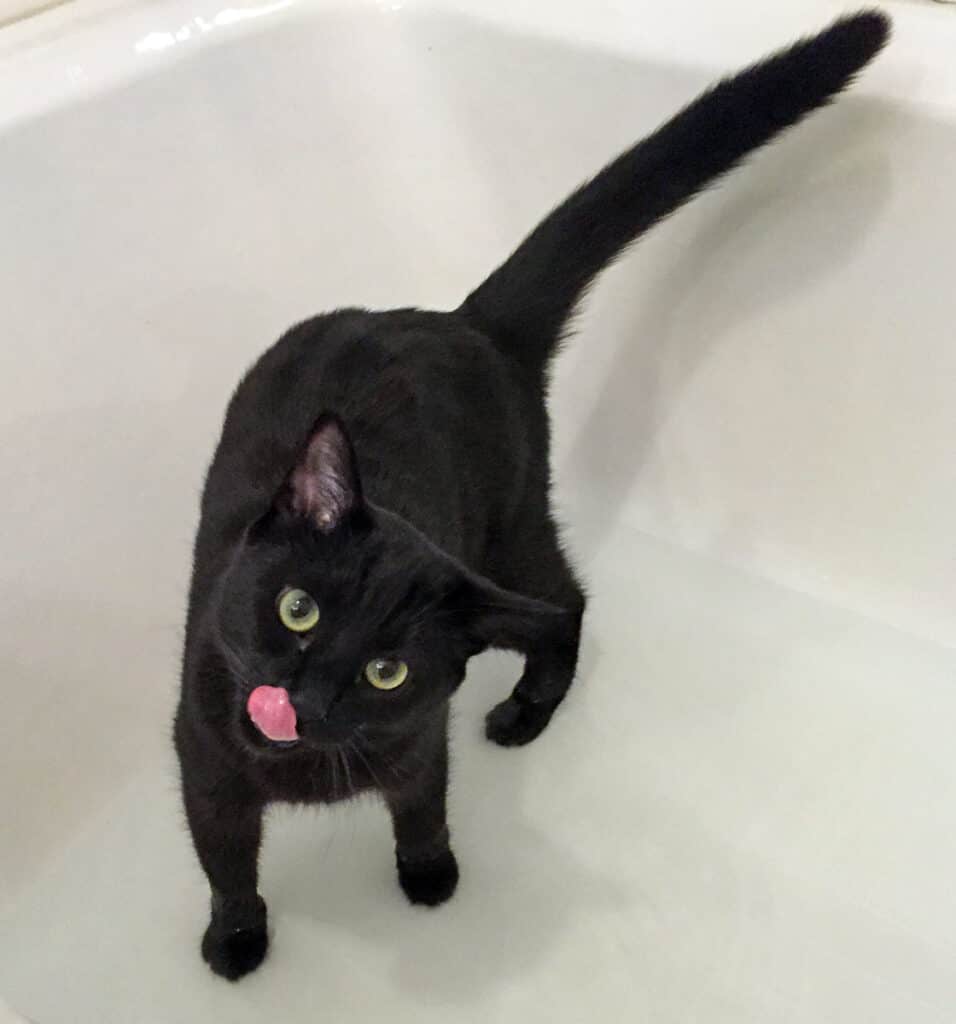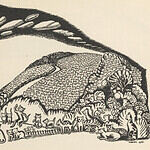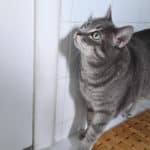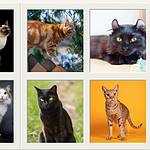We’ve all seen it. An adorable but disastrous video of a curious cat leaning over to look at the water in the bathtub and then splash-falling right in! And, of course, we’ve seen the frantic scrambling the poor, soggy cat does to get out of the water.
Many cats are curious about water, but why is it that most cats seem to detest getting wet so much? There are a few possible reasons for this, but primarily, most cats just aren’t hardwired to love being in water or getting wet.
Domestic cats are descended from desert wild cats
Most domestic felines have descended from a small cat known as the African wildcat, or Felis silvestris lybica, which was known to make desert areas its home. These cats wouldn’t have spent time in or around water and never adapted to be strong swimmers or enjoy swimming.
Ancestors of modern cats mostly got their water needs met through the food they ate. Unless they were dehydrated, these cats probably wouldn’t have been interested in large open sources of water.
Simply put, most cats are new to being around water. Though they may find themselves around water considerably more than their wild ancestors, the instincts of these ancestors still live on.
The modern-day domestic cat’s instinct to hunt may outweigh their natural aversion to water. House cats will tolerate water to fish in ponds and fish tanks. [1]
Many people find that cats enjoy using their paws to make a mess of their water bowls and have grown fond of the experience. Other cats may plop their toy into the water bowl and have fun fishing it out.
Cats prefer to be warm and dry
In conjunction with their history as desert-dwelling felines, cats may have an aversion to water simply because they prefer to be warm. Cats have a warmer body temperature than humans, and they love to be warm.
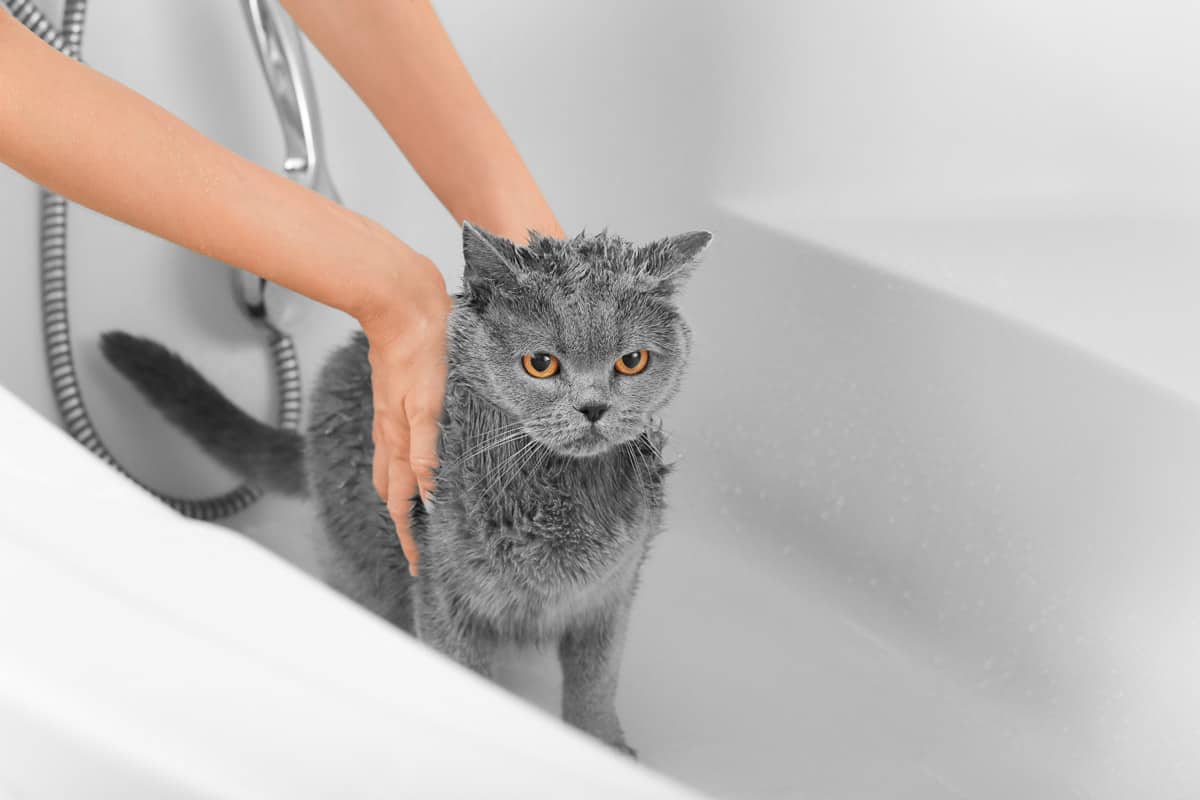
You can often find cats sprawled out in the sun. When wet, a cat’s fur becomes heavy, cold, and even uncomfortable. It can take quite a lot of time for their fur to dry as well, leaving the cat feeling cold, wet, and uncomfortable for a considerable amount of time.
Most cats groom themselves and typically don’t need baths. Since cats groom themselves, they generally have very little oil that gets built up on their fur.
Oil naturally acts as a water repellent. Without this oil, when a cat gets wet, the coat or fur doesn’t help repel the water in the slightest, and it makes its way to their skin rather than sitting more so on the surface.
As mentioned earlier, this can cause the cat to be cold and waterlogged. Feeling cold, weighed down, and like it isn’t as agile as it normally is will definitely make a cat feel like it is at a disadvantage.
It may even feel vulnerable, which is the last thing our kitties want. Though it may be necessary in some cases, most cats would much rather clean themselves than take a bath!
You cat may have a negative past experience with water
Another reason cats may not like water is because of having had a bad past experience with water. Cats are sensitive creatures and easily remember the things or events that frightened them. If, as a kitten, a cat is given a bath that wasn’t comfortable or was scary, or if the kitten fell into the water and was scared, the experience could easily scar them.
Similarly, what used to be a common ‘training’ method (more so punishment) for cats was to use a squirt bottle and spray them with water. If a cat experienced this, it is pretty easy to see how it would have an aversion to water.
If you want your cat to love water, it will be important to create positive experiences from day one, so your cat knows it doesn’t have anything to fear.
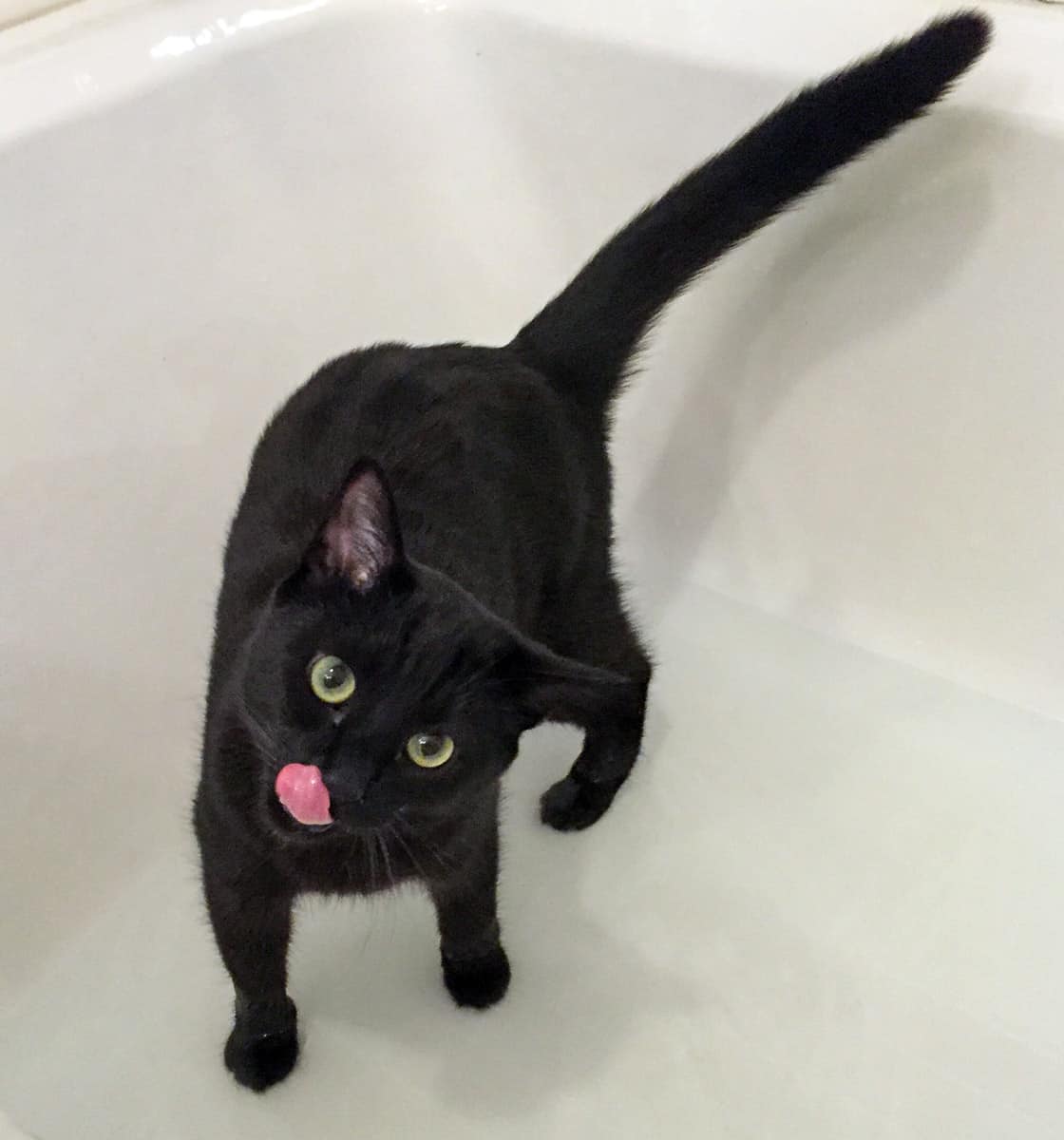
A cat’s sense of smell and water
It is also possible that cats feel such an aversion to water because of the smell! Studies have shown that cats have a better sense of smell than humans and even dogs. Different mammals have different variants of the protein VC1, which is believed to be responsible for differentiating between smells. Humans have two variants of VC1, while dogs have nine variants, and cats have a whopping thirty variants!
While humans may not be able to smell all the aspects of water, cats certainly can, thanks to their highly attuned sense of smell. They even use their own smell to mark their territory and send a message to other cats.
Having their body submerged in something that doesn’t smell anything like them may be off-putting to cats. They might feel as though they have lost their sense of identity. They probably even think we are making more work for them when we try to help them with their grooming!
Cat breeds that like water
Some cat breeds are more likely to enjoy splashing around in water than others. Surprisingly, there are actually quite a few of them. [2]
Van
The Van cat (not to be confused with the British-based Turkish Van cat), sometimes called the Swimming Cat, is a rare breed that seems to really enjoy and be fond of water. In fact, these all-white cats are named after Lake Van, located in southeastern Turkey.
The Van cat’s coat is nearly water-repellent, so after getting wet, the cat isn’t nearly as weighed down as its counterparts or as wet and cold.
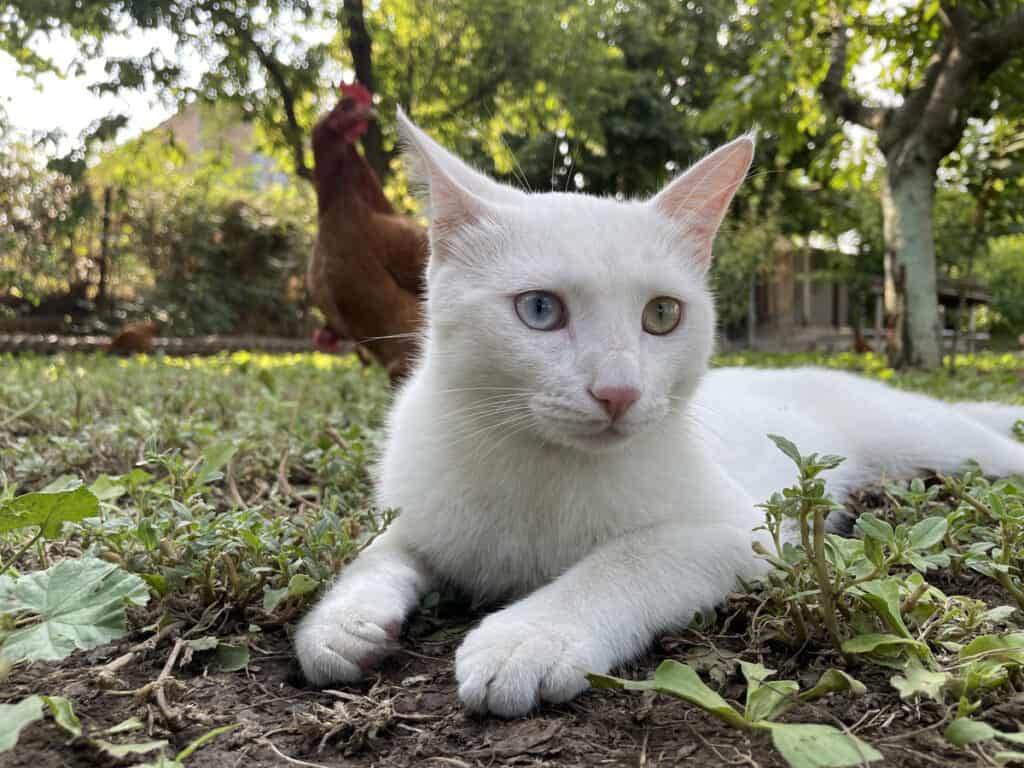
Turkish Angora
Similarly, the Turkish Angora is also known for its love of swimming. If you get the cat outside, it may even go for a swim in ponds and streams. Some people say their cat even comes running when it hears the sound of the shower or the sink!
Bengal
Another cat that seems to love water is the Bengal. The Bengal is a mix between a domestic cat and the Asian leopard cat. It is highly in tune with its wild side and immensely enjoys hunting.
Many owners will fill up their bathtubs, toss in their cats’ favorite toys and let them play in the water and “hunt” their toys.
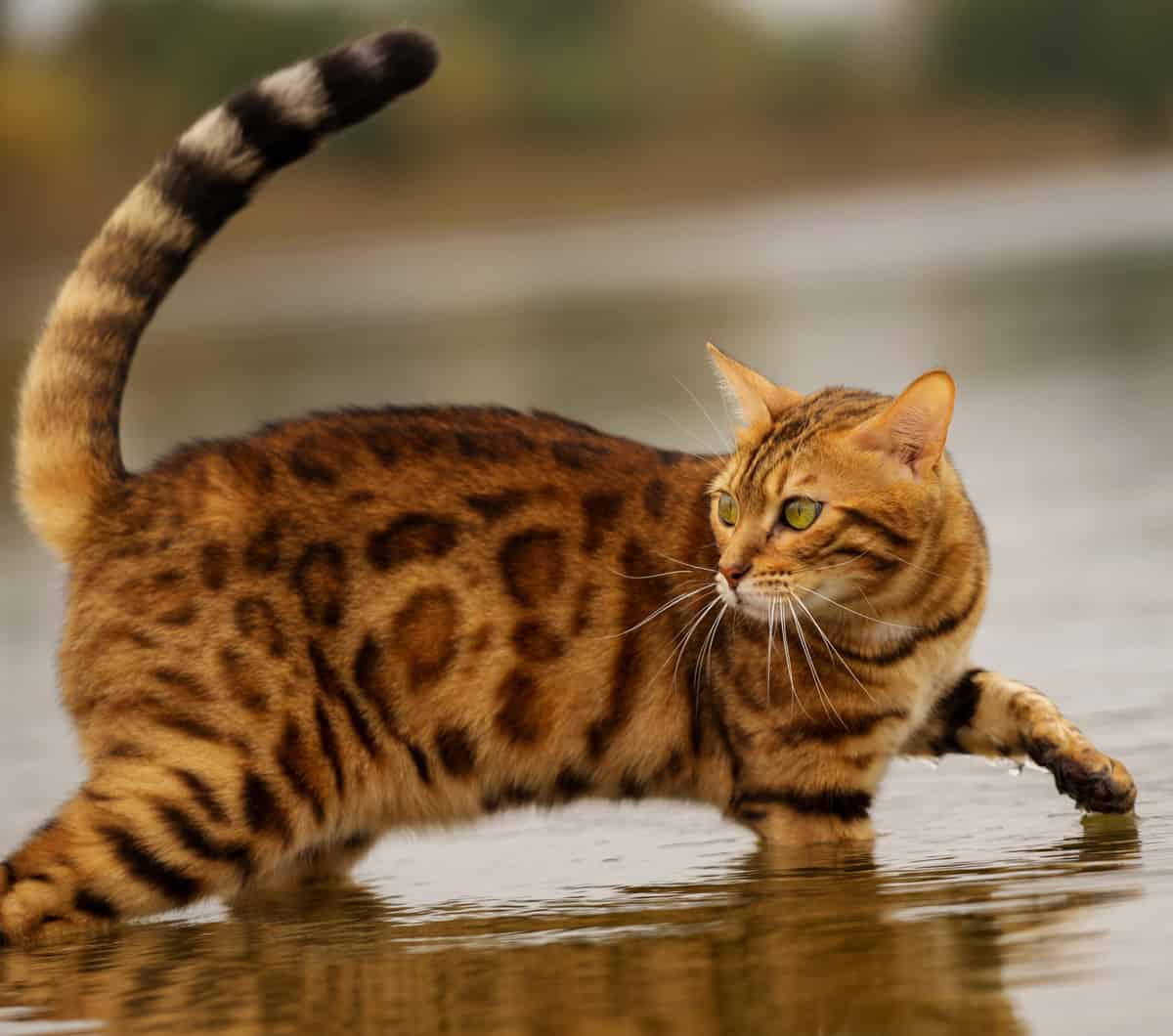
American Bobtail
The American Bobtail is another breed of cat that is known to enjoy a good swim every now and then. Some even refer to this breed as the dogs of the cat world due to their dog-like traits like loving water, enjoying walking on a leash, and their trainability.
Japanese Bobtail
In many ways, the Japanese Bobtail is similar to its cousin, the American Bobtail. It does, however, have a much shorter tail! Besides that, they both like water and can be trained easily to walk on a leash and play fetch.
Maine Coon
The Maine Coon is one of only a few breeds of cats with a water-resistant coat and is known to have an affinity for water. Its ancestors were known to be used as a means of keeping pests at a minimum on ships at sea.
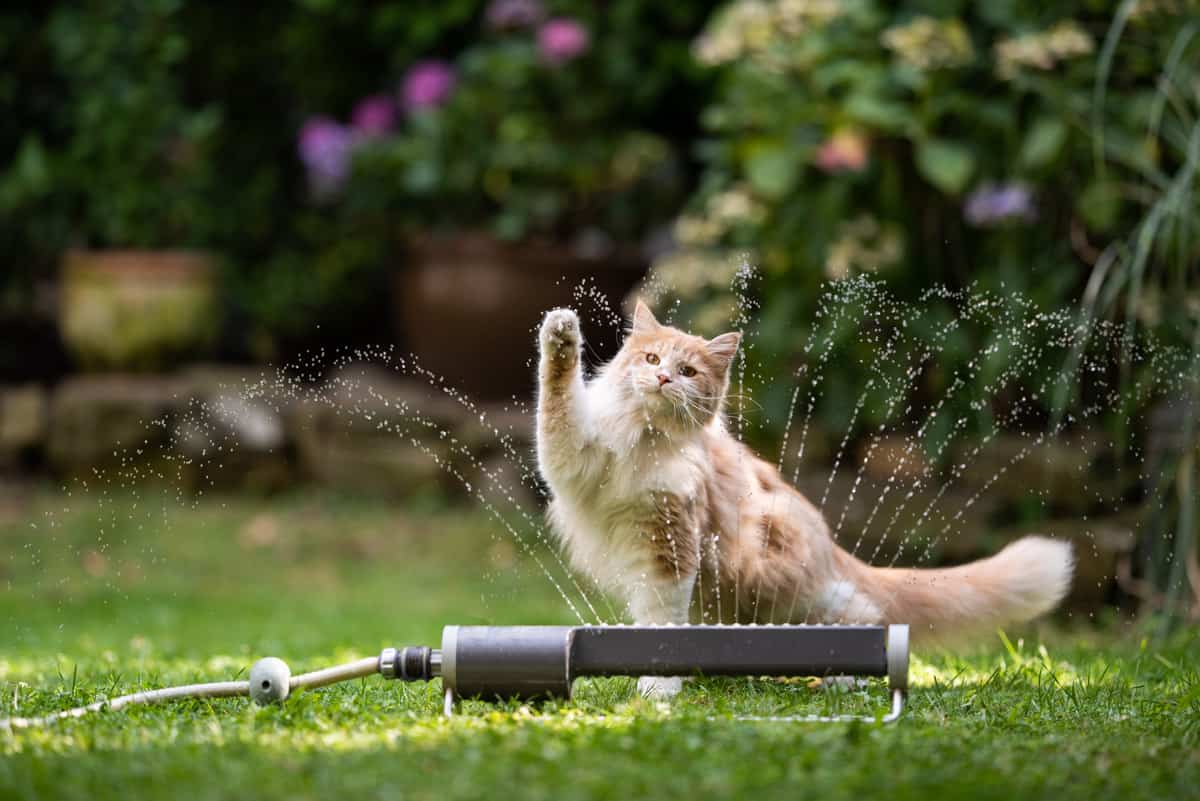
Norwegian Forest cat
The Norwegian Forest cat is one of the kitties on this list that is known to actually hunt fish. Similar to the Maine Coon, these cats also have a water-resistant coat. This coat helps keep the cat warmer and helps them dry off more easily after swimming or hunting their fish for dinner.
Manx
The Manx cat, a naturally tail-less cat known to enjoy the water, is believed to have come from the Isle of Man. Maybe being stuck on an island helped them become a fan of water.
Abyssinian
Abyssinian is another cat breed that is known for loving water. They are a highly energetic breed, which may be partly why they are more willing to enjoy splashing around. They are sometimes even called the clown of the cat world due to their silly, fun, and energetic nature.
Kurilian Bobtail
The Kurilian Bobtail is known to like playing in water and hunting. They are even known to be able to catch a salmon right out of the water! Native to Russia, they have a thick coat that is near water resistant to help protect them from the cold.
Siberian cat
Like the Kurilian Bobtail, Siberian cats have an incredibly thick coat to protect them from the cold. These cats tend to show a fascination towards water. They will want to inspect their water bowl and will definitely want to inspect the kitchen sink and its faucet!
Highlander
The Highlander is an energetic cat that loves water. Some owners say that they will almost definitely try to join you for a bath when they aren’t busy playing around the house.
Egyptian Mau
The Egyptian Mau is an ancient breed of cat but is well known to be a fan of water. Many people even say that their Mau cat turns on the faucets by itself.
Savannah
The Savannah was originally developed from a Siamese crossed with an African Serval. The serval’s home is home to many bodies of water, and they are very comfortable with it. This trait has been passed down to the Savannahs as well.
Conclusion
As can be expected, many cats have a natural aversion to water due to their ancestry, their fur and coats, their sense of smell, and because they like to stay warm. Other cats like the ones mentioned above can come to really enjoy the water, so much so that they’ll even gladly go for a swim.
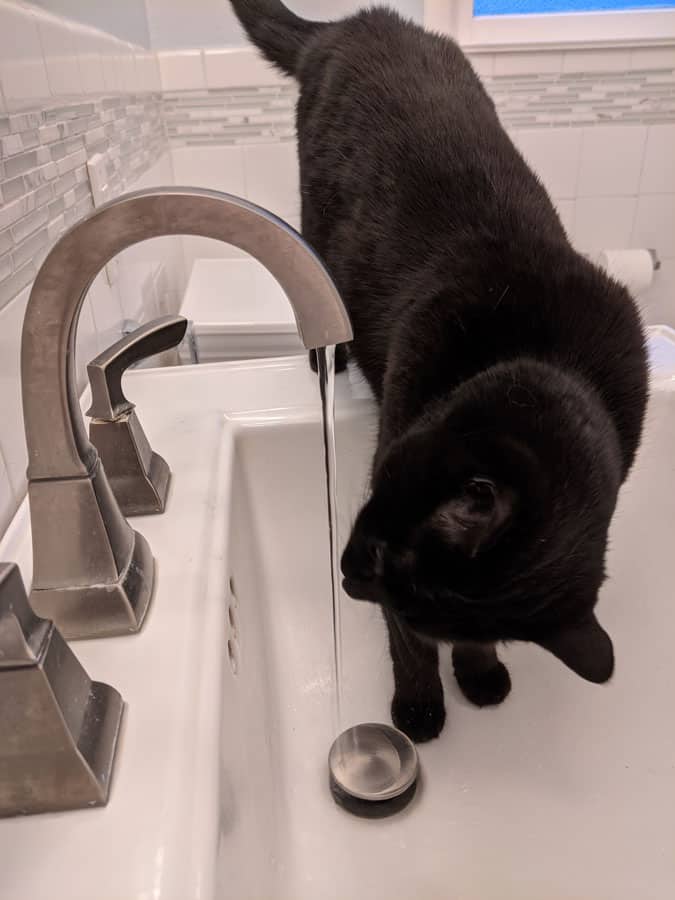
Even the cats that don’t like baths or swimming may actually like faucets and drips or streams of water coming out of them. You might even find that your cat comes running when you turn on the faucet of the bathroom sink. They enjoy swatting at the water coming out and most cats prefer to drink water from a fresh source.
References
[1] Gudger, E. W. (1945). Feline Fishermen some Accounts of Fishing by Domestic Cats. The Scientific Monthly, 60(2), 89-96. https://www.jstor.org/stable/18594
[2] Box, E. (2021). Guide to physiotherapy and rehabilitation of cats. In Practice, 43(10), 557-563. https://doi.org/10.1002/inpr.150

